ANZ Bank didn’t consult community groups about slur-filled advertisement
ANZ Bank has touted its support for the LGBTIQA+ community as it tries to rid the world of hate speech, but many are not happy with an advert they used to do it.
A new online ad campaign from ANZ Bank aimed at getting people to stop verbally abusing members of the LGBTIQA+ community has received a widespread public backlash.
The Love Speech campaign is timed to coincide with Sydney Mardi Gras, as well as a new Google Chrome extension that proactively blocks hate speech against those identifying as lesbian, gay, bisexual, transgender, intersex, queer, asexual and others
The Hurt Blocker extension scans the text of pages and replaces derogatory terms with emoji renderings of love hearts and rainbows instead.
“For me, as a member of the LGBTIQA+ community I think the extension is really important because people like me see that negative language every day online, and it’s a really creative way of being able to block out that language that is really hurtful to our community,” ANZ Bank’s pride network chair Darren Sibson told news.com.au.
The extension can be customised to filter out any words users don’t want to see, not just ones the developers have identified as slurs.
ANZ Bank said the extension doesn’t collect any data on its users beside the standard data on metrics and analytics, which is collected by Google and not the bank.
Unfortunately the blocker doesn’t work on videos, aside from their captions.
This would mean even if users had the extension installed they would still be confronted with the slurs in one of the bank’s new Love Speech campaign ads, aimed at getting people to stop using the slurs in the first place.
The ad features several members of the LGBTIQA+ community (whom Mr Sibson assured us were paid for their time and experiences) introducing themselves, not by their names, but by the awful abuse that has been hurled at them throughout their lives.
WARNING: THE BELOW VIDEO AND OTHER EMBEDDED CONTENT CONTAINS GRAPHIC LANGUAGE, INCLUDING HATE SPEECH
Words do hurt. We need more #LoveSpeech. 🌈â¤ï¸
— ANZ Australia (@ANZ_AU) February 19, 2020
The ad received a backlash online, with one user saying “if you insist upon continuing with this campaign could you at least add a content warning for homo/transphobic slurs.”
“Because my heart sank suddenly hearing “fa**ot” unexpectedly. And if I’m going to hear the word that has tormented me for years, I’d like to be warned.”
Another said “Thank you for painting us as victims @ANZ_AU - so empowering.”
“That’s a really brutal video, folks. Someone else mentioned it contained slurs and I was still unprepared for it. You must understand that’s like a punch in the face for some people. If you have to use it, it really needs a warning,” one Twitter user said.
ANZ replied that it aims “to support the creation of a society where the talents, experience and perspectives of our staff and customers are valued, regardless of their gender identity, race, age or sexual orientation.”
The bank told another user: “we considered a range of community views and sought necessary classifications and ratings before sharing online. We’re trying to show the impact hurtful language can have on individuals. Even when they aren’t intended to be offensive, words can hurt."
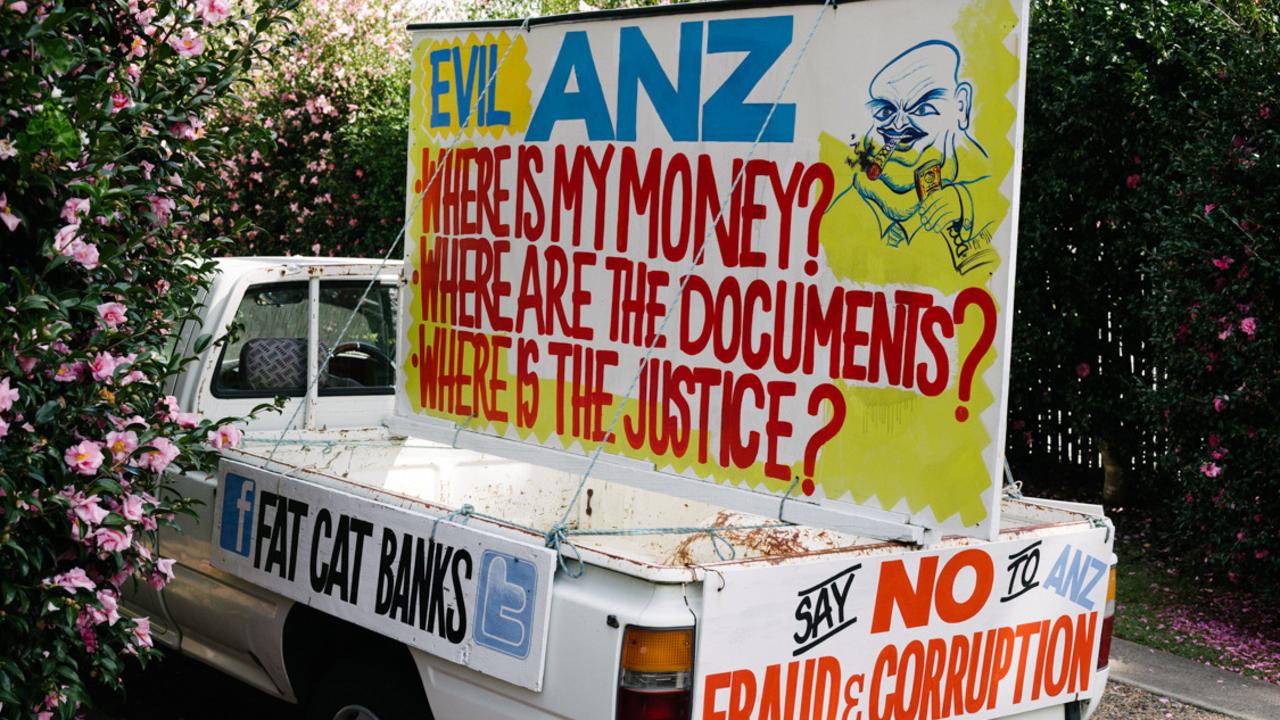
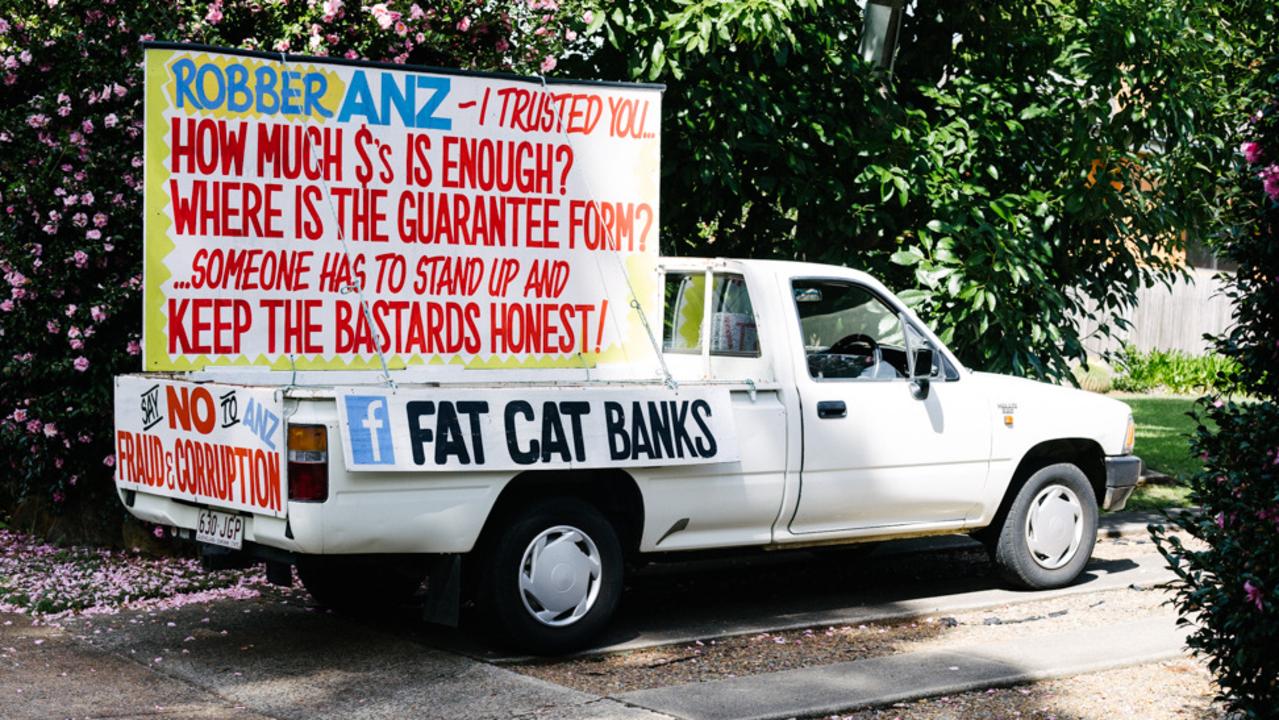
Mr Sibson said: “People outside the LGBTIQA+ community are a large target audience, we want to raise awareness and stop people using hurtful language.
“We always knew this campaign was going to be confronting and we were prepared for the negative responses but we really wanted to start the conversation.”
Start a conversation it did.
Aside from the rote reactions of the perpetually outraged, there were also members of the LGBTIQA+ community the ad is attempting to support who were annoyed about the tactic and those used in other ads that form part of the campaign.
Am I... am I meant to like this? https://t.co/qzvEDkAgN0
— Rosie Piper ðŸ³ï¸â€ðŸŒˆ (@rosealicepiper) February 20, 2020
Thank you [brand] for solving [social issue] with your ad
— Bec Shaw (@Brocklesnitch) February 20, 2020
LGBTQ+ Community: stop tokenising us with pinkwashing you clearly just want our money without making efforts to fix past problems
— james_s01e01XVID (@parsnipzilla) February 20, 2020
ANZ: The N in ANZ stands for the N Word https://t.co/8STZ1dlb6m
Seems like an easy role as far as work required, just copy paste some condescending marketing copy and sprinkle it with rainbow emojis 🌈🌈ðŸ³ï¸â€ðŸŒˆðŸ³ï¸â€ðŸŒˆ
— Hayley Elise 👻 (@_HayleyElise) February 20, 2020
ANZ can call me a faggot if they give me $10,000
— 🌼🌸✨Patrick Lenton✨🌸🌼 (@PatrickLenton) February 20, 2020
oh! that anz ad is now a pre-roll youtube ad! great! now i can’t escape it while i watch videos that have been demonetised because the creator is lgbt
— oslo (@thisoslo) February 21, 2020
Honestly even if ANZ did a Gillette style ad and got it “right†they would still absolutely suck. I can’t express this enough. The terms of the conversation are so warped. This is a bank that let down thousands of bushfire victims and regularly partner with fossil fuel industries
— jÅ“nnüi (@jonnoxrevanche) February 20, 2020
Absolutely zero shade to the community members featured in the ANZ ad - all power to them - but oooft. Feels pretty gross and a bit hurtful, to me, watching an ad for a bank using the uncensored words f*ggot, d*ke, tr*nny in the newsfeed...
— Sally Rugg (@sallyrugg) February 19, 2020
That ANZ ad isn't made for queers. It's made for straight people. Everyone knows what the slurs are. And the hurtblocker. I can't imagine wanting to contaminate my favourite emoji to hide vitriolic hate speech thrown at me. Rainbow dollar gather fail.
— MJ Leaver (@MJ_Leaver) February 20, 2020
Seriously, @anz_au? You think that LGBTIQ people want a bank to run an ad that contains triggering homophobic and transphobic slurs? As part of your corporate strategy to make more money? While flagging “lovelanguage†so that queers will click?
— Gemma Cafarella ðŸ³ï¸â€ðŸŒˆ (@gemmacaf) February 20, 2020
In the bin. Bin bin bin. https://t.co/gQqArzbmKV
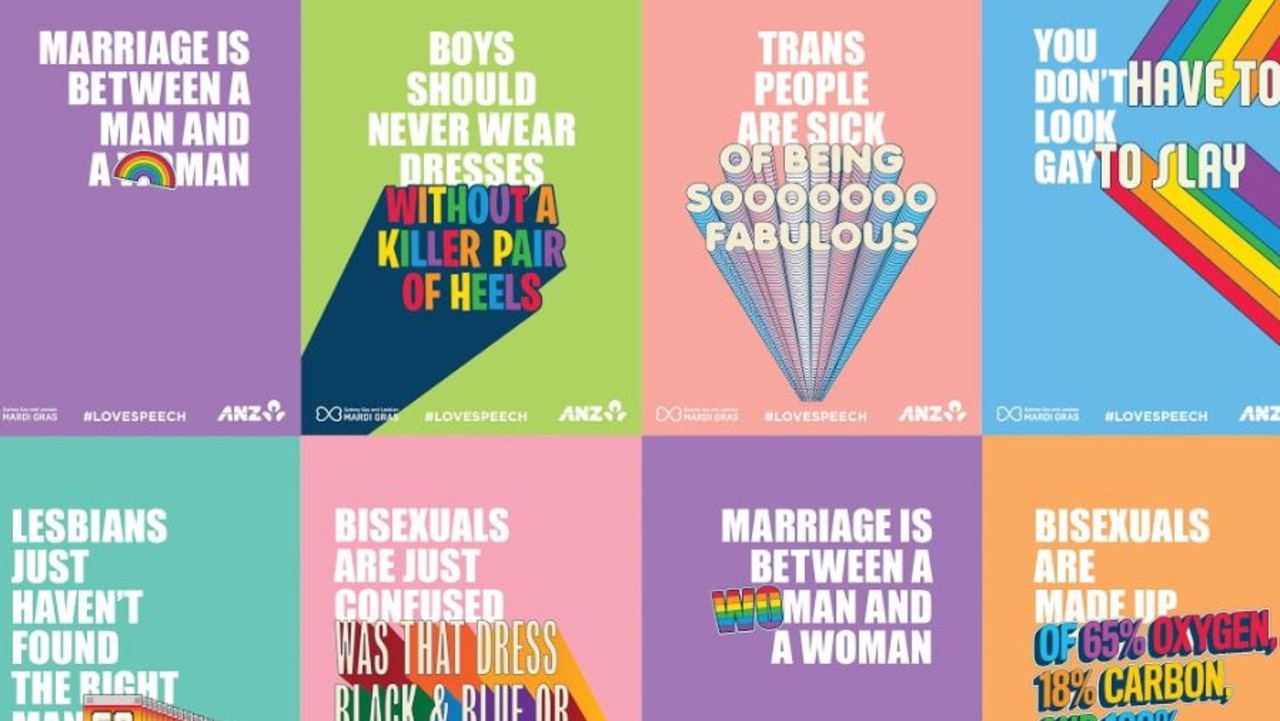
Another user railed against the bank's “pink washing”.
“Pink washing” is when an organisation, brand or company seeks to make itself appear as a progressive advocate for the LGBTIQA+ community, in order to downplay its otherwise poor behaviour.
Mr Sibson refuted allegations that was what ANZ Bank was doing, however.
“This is not new for ANZ, this is something we’ve been doing for more than 14 years and that’s how long we’ve been supporting Mardi Gras, we have a pride network that challenges the bank everyday on inclusion.”
“As a gay man working here I’m absolutely proud of the achievements we’ve made internally at the bank, my hope is that I don’t get called these names on the street anymore.”
But still others didn’t think the ad was a problem and would be useful for its target audience.
Can someone please help me understand the outrage about the ANZ bank ad? It seems like faux outrage to me... outrage for the sake of something to complain about today. The ad is very effective and sends a powerful message.
— Marty 🦘 (@m4rtyps) February 20, 2020
Despite the yes vote, nearly 80% of surveyed LGBTIQA+ Aussies copped anti-queer slurs in the past 12 months alone.
— Benjamin Law ç¾…æ—能 (@mrbenjaminlaw) February 19, 2020
And yet, over 40% of cis-het folks reckon bigoted anti-queer bigoted language is still an issue.@sydneymardigras sponsor @anz_au's #LoveSpeech campaign is timely. pic.twitter.com/qvB3IWZ6iG
On that ANZ ad. I can't speak for ANZ, but I don't think we (queers) are the audience. At Christmas I had to explain AT LENGTH to several (cis, straight) relatives why they couldn't use the word 'faggot'.
— James Findlay (@james_findlay) February 20, 2020
NSW Gay and Lesbian Rights Lobby convener Jack Whitney told news.com.au he found the campaign and the response to it “really interesting”.
“I was recently talking with a colleague about the importance of language in our community, because as a group of people, we have been at the blunt end of it — often as kids growing up in our schools, towns and cities.”
He said the ANZ video touched on what is an “important and very real issue” but “it does appear to be mismatched alongside the Google Chrome Extension and ad campaign which is about reducing hate speech in the public space, not spreading it.”
He also doubted how effective it would be on its target audience.
“I am sceptical that such a video will do anything to change those who use hate speech, but it is a reminder to allies that our community does experience hate in 2020 — bullying in schools, workplace discrimination, barriers in healthcare, especially for the trans and intersex community.”
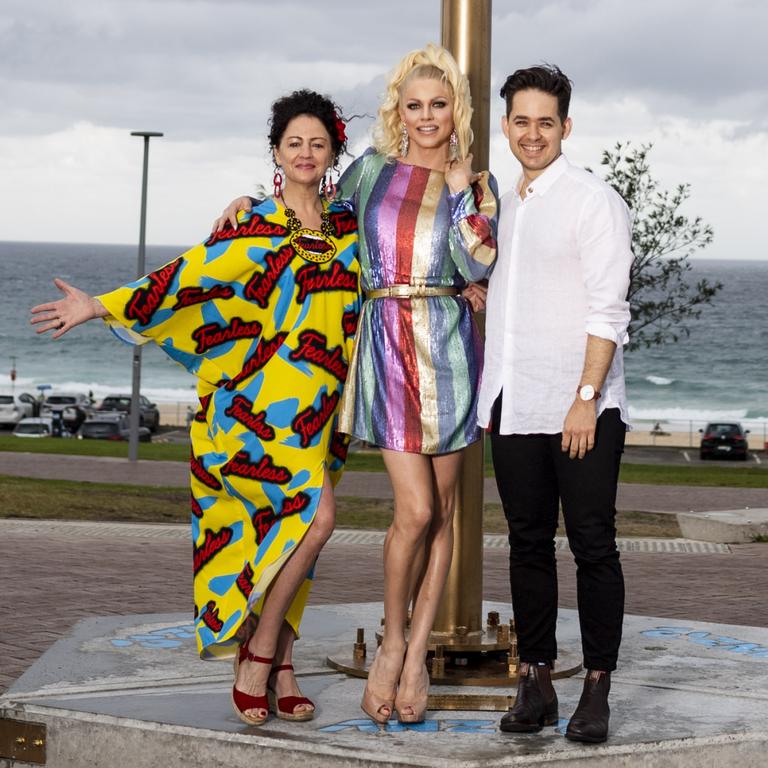
Mr Sibson echoed the sentiment, and said despite progress that’s been made hate speech is still a very prevalent issue for the community.
“We still encounter homophobic slurs daily, one of my friend’s friends is still getting abused at [Melbourne’s] Southern Cross station. The reality is that eight in 10 Aussies have told us they are still the victim of hurtful language, we want to show the impact hurtful language can have on the LGBTIQA+ community,” he said, adding that there was a spectrum for offence.
“There are some words that people might not think are intentionally hurtful, all the way up to the slurs.”

ANZ Bank’s internal research found 69 per cent of Australia’s LGBTIQA+ community have been called a slur in the past year.
But aside from consultation with its own internal pride network and a “briefing” to the Sydney Gay and Lesbian Mardi Gras event the bank sponsors, ANZ Bank didn’t consult with any external groups representing the community ahead of time.
Mr Whitney said that was “a bit disappointing”.
“A lot of community members have asked about whether they did engage the community and felt quite surprised that — if they hadn’t — that they would put together such a video.”
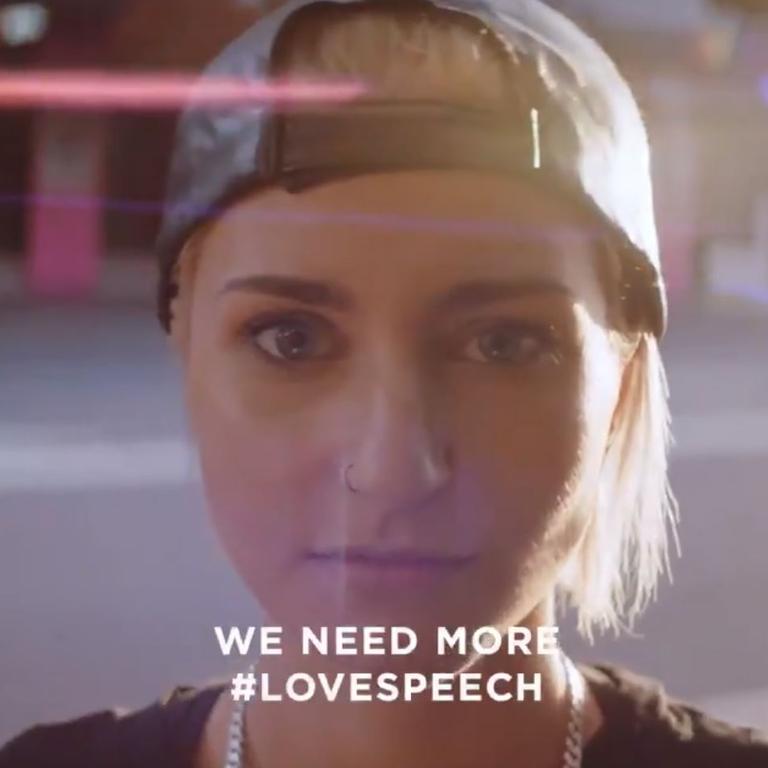
Mr Sibson said the bank “did get the appropriate classifications from social media platforms about putting something like this out”.
“The video obviously includes those slurs but it’s designed in a way to bring attention to the problem that we’re facing and the names we are called quite regularly as well as to ignite a conversation about that hurtful language,” he said.
News.com.au has asked Sydney Gay and Lesbian Mardi Gras about what the “briefing” from their main sponsor entailed and is awaiting a response.



